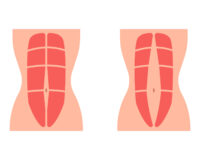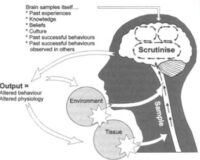
Magnesium – The Quiet Achiever
Anyone who knows me has heard me say repeatedly – “If I could, I’d put everyone in the world on magnesium” (I’d also do the same with a probiotic, but that’s another blog!) It’s a general statement, but in all seriousness magnesium is one mineral that is generally underestimated.
Magnesium is such an important mineral. It is found in more than 300 different enzymes in your body and plays a role in such processes including:
- Detoxification
- Activating muscles and nerves
- Creating energy in your body
- Helping digest proteins, carbohydrates, and fats
- Serving as a building block for RNA and DNA synthesis
- Acting as a precursor for neurotransmitters like serotonin (your “happy” drug)
Most magnesium is stored in your bones and organs – not your blood, so a blood test won’t reveal deficiency. Hence we tend to use symptomology to determine magnesium deficiency. Some of the more common signs of magnesium deficiency include:
- Muscle cramps
- Numbness and tingling sensations
- Restless legs
- Eye twitching
- Headaches
- Nausea, fatigue, weakness
- Abnormal heart rhythms
So why are so many people deficient in magnesium?
We get our minerals from the foods we eat and liquids we drink. So our mineral intake is generally only as good as the soil, or water, the plant is grown in. Magnesium, over the years, has been depleted out of the soil. Couple with that the use of herbicides, which can effectively block the uptake of what minerals are left in the soil and our food sources are further depleted. Cooking and processing of foods also depletes magnesium. So we get much less from our foods than we used to.
On top of this reduced intake of dietary magnesium, there are several factors which affect our absorption and utilisation of magnesium including:
- Excessive alcohol intake
- Stress
- Exercise
- Increased sugar intake
- Excessive intake of soft drinks or caffeine
- Menopause
- Older age – this could be because absorption decreases with age or because the elderly are more likely to take medications that can interfere with absorption
- Certain medications- including diuretics, certain antibiotics (such as gentamicin and tobramycin), corticosteroids (prednisone), antacids, and insulin
- An unhealthy digestive system, which impairs your body’s ability to absorb magnesium (Crohn’s disease, leaky gut, etc.)
- Vitamin D levels as these effect the absorption of magnesium
Then, how do I increase my magnesium intake I hear you say?
There are some foods higher in magnesium than others, these include:
- Green leafy vegetables
- Seaweed- nori, wakame, dulse
- Pumpkin, sunflower and sesame seeds
- Nuts
- Avocado
- Bananas
- Dark chocolate
Another way to increase your magnesium is to take an Epsom salt bath. Epsom salts are made from magnesium sulfate which can be absorbed through the skin. There are also magnesium creams, gels and lotions available. A great way to soothe tired and aching muscles and get a little detox going as well!
If you need a supplement, things get a little more complicated. Magnesium needs to be bound to another substance for absorption, so there are many different forms of magnesium and magnesium blends available. The substance it is bound to will affect absorption rates and may also provide slightly different targeted health benefits:
Magnesium orotate – in recent research, magnesium orotate has shown promising results in its effectiveness in people with cardiovascular disease, those who have had a heart attack or heart surgery, or those who desire outstanding cardiovascular fitness.
Magnesium citrate has traditionally been used as a laxative. It has outstanding absorption and seems to penetrate cell membranes, including your mitochondria, which results in higher energy levels. Magnesium oxide is another with prominent diarrhoea actions. It is harder to absorb.
Magnesium glycinate is a chelated form of magnesium that tends to provide the highest levels of absorption and bioavailability. It is readily absorbed into the muscles, hence is great for cramping associated with magnesium deficiency. Magnesium chelate is gentle on the digestive system and is also well absorbed into the muscles.
Magnesium Taurate is combined with the amino acid taurine and tends to have a calming effect on the mind and body.
Magnesium Phosphate is combined with a phosphate and seems to have an affinity for nervous system support.
A word of caution – if you decide to take a supplement be on the look out for softened bowel motions, this means you have reached “saturation” and should reduce your intake accordingly.
Like I said, this marvellous little mineral tends to be underestimated. It can be so helpful for a multitude of things from muscle pain, cramping or delayed onset muscle soreness post exercise to headaches and restless leg syndrome. So don’t just live with these or other symptoms come in and have a chat with us to get you back to feeling your best!
References
Robert Buist PHD, FX Medicine http://www.fxmedicine.com.au/blog-post/magnesium-orotate-right-magnesium-cardiovascular-health
Dr Mercola: http://articles.mercola.com/sites/articles/archive/2015/01/19/magnesium-deficiency.aspx
Book Appointment



